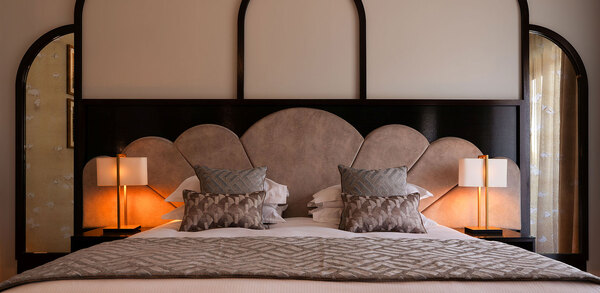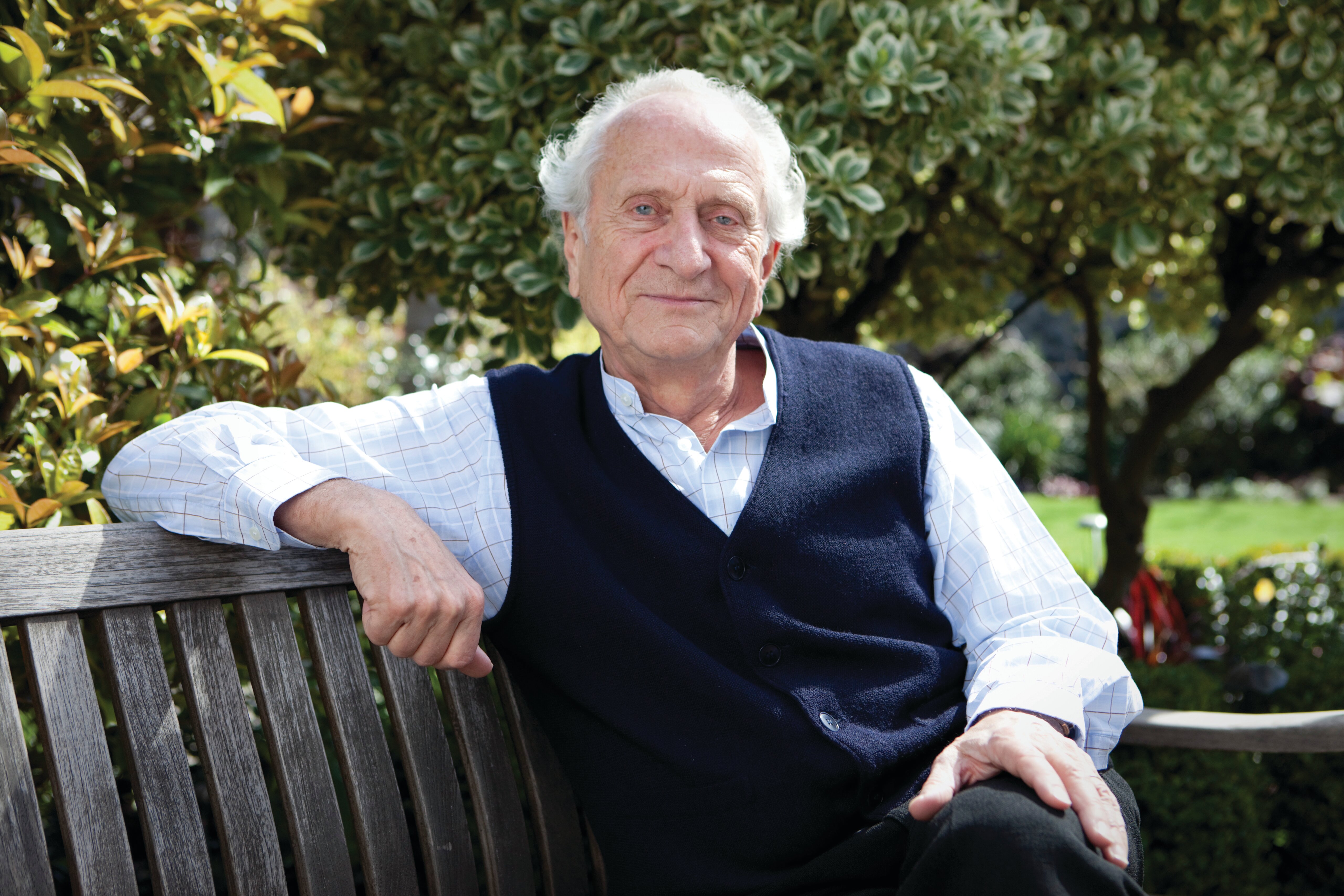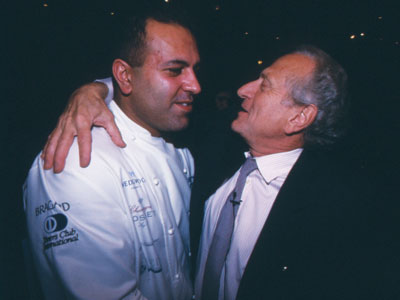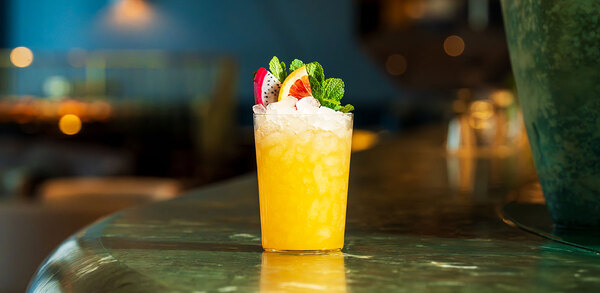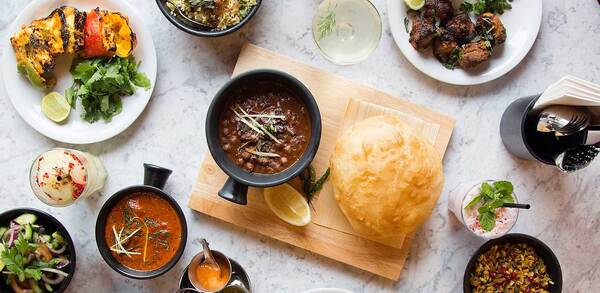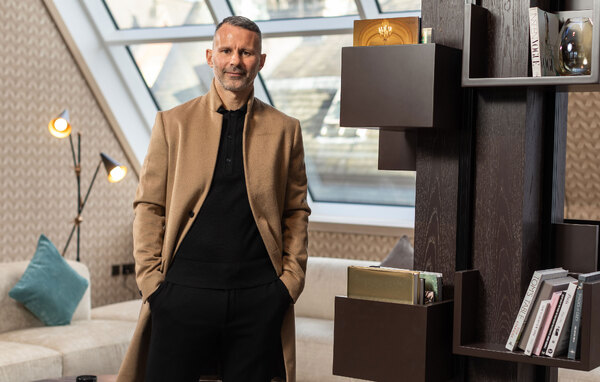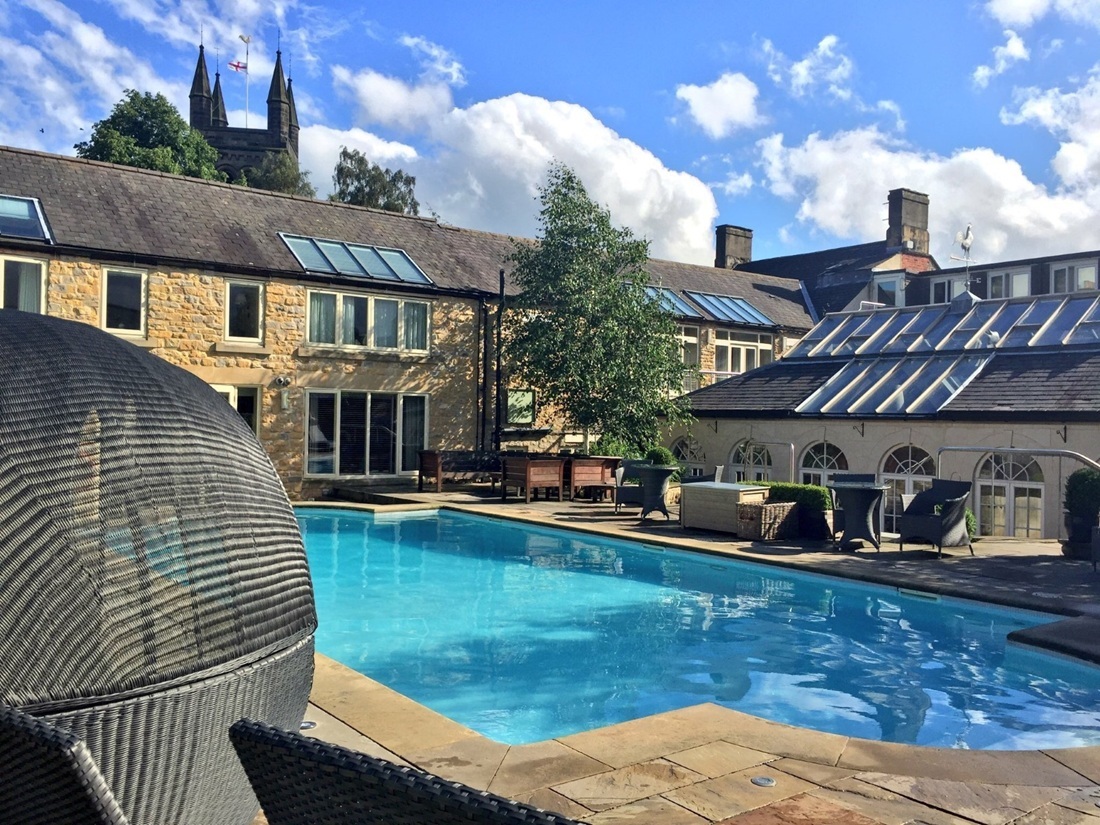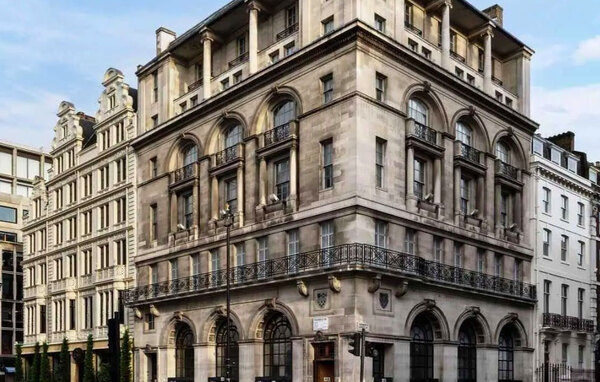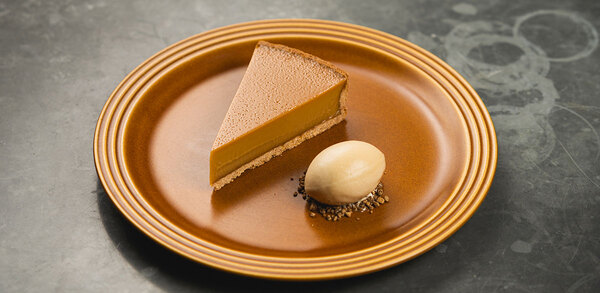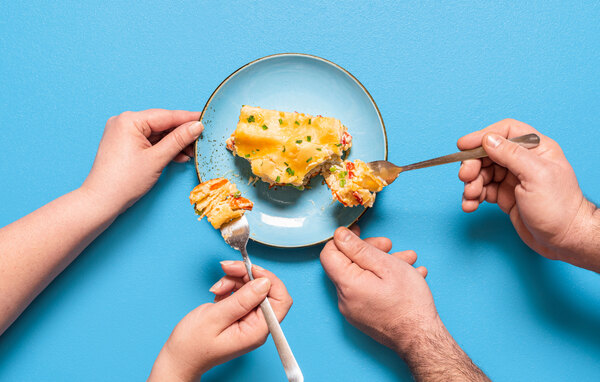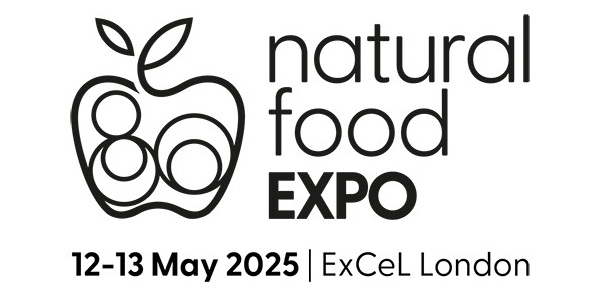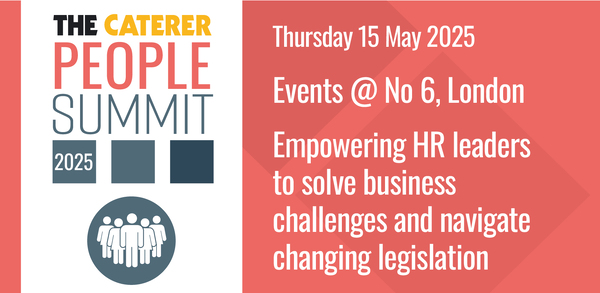The Caterer and Hotelkeeper Interview – Michel Roux
One of the industry's most acclaimed cookery competitions, the Roux Scholarship this year celebrates its 30th anniversary. Michel Roux, who co-founded the Scholarship with his brother Albert, tells Kerstin Kühn how it has developed over the past three decades and how he sees it continuing to grow in the future
What first inspired you to launch the Roux Scholarship?
We wanted to help them grow by placing them on stages in two- and three-Michelin-starred restaurants in France but whenever we contacted colleagues over there, their response to the idea of a British chef coming to their restaurant was always: âIs this a joke?â It really annoyed me actually because there were some very talented boys who were ready to be developed further but nobody on the continent wanted to take them.
Â
So how did the Scholarship start? It was Nick Rowe from Diners Club who came up with the idea of running a cookery competition, which he would sponsor. The idea was that if somebody won a competition and became a Roux Scholar, it gave them enough credibility so the chefs in France would not be able to refuse them. It gave us the chance to prove to the continent that there were some really promising young chefs in Britain, which they thought didnât exist.
Did you think back then that it would continue for as long as it has? Did I think when we first opened Le Gavroche and the Waterside Inn that we would achieve three stars one day? Certainly not. But we were opening restaurants with the desire to become the best in the country. When we do something, we want to be among the best â" we donât do things half-heartedly, and the Roux Scholarship was the same. We were definitely hoping that it would develop into something big. But I do sometimes have to pinch myself when I think about it having run for 30 years.
Â
Were there ever any points where you thought about giving it up? Diners Club was one of the main sponsors of the competition for the first few years when it was called the Roux Diners Club Scholarship. When they pulled out we needed to find a new sponsor but for two years we didnât have one so Le Gavroche and the Waterside Inn had to finance it. We could easily have killed it then because we couldnât really afford to run it without a sponsor but we felt that we owed it to the young chefs to carry on. So for two years we put up the money ourselves, which cost me and Albert an absolute fortune.
How has the competition changed over â¨the years? It has gone from kindergarten to university level. When we started it was quite simple but we have become a lot more demanding over the years. When Andrew Fairlie won the first Scholarship in 1984, he was the best of what Britain could produce at that time. He has gone on to become a two-Michelin-starred chef and things in Britain have changed immensely since then. The competition has changed with the times and we are now pushing it on various levels.
Â
How are you marking the 30th anniversary of the Roux Scholarship this year? We are thinking of holding a big charity dinner at the Mandarin Oriental hotel in London for around 150 guests. The profits will mainly go to [Mandarin Orientalâs group director of food and beverage] David Nichollsâ Spinal Injury Foundation. He has been a judge of the competition and welcomed us at the Mandarin Oriental for the past 12 years. He has been so generous we want to give something back. About a third of the profits will go towards the Roux Scholarship Clubâs next educational trip, to New York.
Â
This year the competition is being filmed for a 10-part UKTV series â" tell us more The series is a one-off, which we are doing to mark the 30th anniversary. It will be broadcast on the Watch channel and will show the Roux Scholarship to millions of people. Weâve got celebrity guest chefs involved including Raymond Blanc, Angela Hartnett and Rick Stein. Yes it will change the format but itâs only for one year. All of the money we are making from the TV programme will go to charity; the Roux family is not taking anything.
What separates the Roux Scholarship from other competitions like National Chef or MasterChef: The Professionals? No other competition offers its winner a fully organised and all-expenses paid three-month stage at a three-Michelin-starred restaurant. Plus one of the Roux family â" usually me â" comes to visit and check on the Scholarâs â¨experience. Albert, Michel Jnr, Alain and myself have the combined professional experience of more than 150 years and we are all still working. I donât know of any family in Europe who can say they have two fathers and two sons who are still working at our level and can help a young chef like we can.
And then of course thereâs the Roux Scholarship Club, which is like a family. Last year 14 of them went on an educational trip to Japan [read about it on www.catererandhotelkeeper.co.uk/roux] and they were like kids out there. I donât think competitions like National Chef or â¨MasterChef: The Professionals have a similar network of former winners.
Have you ever struggled to get a Scholar a stage at a restaurant? Never. Sometimes it can be difficult to get in touch with three-star chefs because they are â¨so busy and some of them can be real prima donnas. But once Iâve got them on the phone it has never been a problem to place a Scholar.
Â
Have any Scholars disappointed you? There was one but I wonât mention their name. They went on their stage at a very famous three-star restaurant in France and left after two weeks, saying theyâd seen it all and could cook better than that. Then they went on to another three-star restaurant and didnât stay there long either. It was very disappointing.
Â
How do you choose the ingredients and recipes the competitors have to work with? These days Alain chooses the recipes as heâs really in charge of the competition now. I help him, of course, but he does the bulk of it. For the first two rounds we choose an ingredient that the chefs will be familiar with and will know how to work with. They can come up with anything â" classic, modern, French, Thai, fusion, we donât care as long as it shows skill and creativity. For the final cook off we choose a classic dish, usually from Escoffier or Larousse Gastronomique. They have to show that they can cook a classic because we believe thatâs the basis of being a great modern-day chef.
Â
How do you see the Roux Scholarship developing in the future? Albert and I want to retire from the competition. We will still come to the final, of course, but we donât want to run it any more. So Alain and Michel Jnr and the Scholars will take care of it going forward. Andrew Fairlie has already been very involved for the past few years but others like Sat Bains will also come on board and help develop it. We may become less focused on classic dishes and become more modern but one thing is for sure: we will never follow any fashion.
Â
| The Roux Scholarship Club | |||
| YEAR | NAME | WHERE THEY ARE NOW | STAGE SPENT WITH |
1984 | Andrew Fairlie | Restaurant Andrew Fairlie at Gleneagles ** | Michel Guérard at Les Prés dâEugénie, France |
1985 | John Murray | Sweet Sensation Patisserie, Sydney | Roger Vergé at Le Moulin de Mougins, France |
1986 | René Pauvert | René on the Mews, Armidale, Australia | Emil Jung at Au Crocodile, and Joël Robuchon, France |
1987 | Richard Stuart | Galaxy Macau, China | Marc Meneau at LâEspérance, France |
1988 | Ricky Perrin | Royal Thames Yacht Club, London | Paul Bocuse at Restaurant Bocuse, France |
1989 | Martin Hadden | Historic Sussex Hotels | Jacques Pic at Maison Pic, France |
1990 | Scott Hessel | Closed his two pubs last year | Eckart Witzigmann at Aubergine, Germany |
1991 | Eugene Callaghan | Kellyâs Resort hotel, Co Wexford, Ireland | Jacques Lameloise at Lameloise, France |
1992 | James Carberry | Dublin Institute of Technology | George Blanc, France |
1993 | Jonathan Harrison | Sandpiper Inn, Yorkshire | Alain Ducasse at Le Louis XV, Monaco |
1994 | Mercy Fenton | Jacobâs on the Mall, Cork, Ireland | Bernard Loiseau at La Résidence de la Côte-dâOr, France |
1995 | Chris Colmer | Development manager, Bakkavor, London | Pierre and Michel Troisgros at Troisgros, France |
1996 | Trevor Blyth | The White Fox, Tokyo, Japan | Michel and Jean-Michel Lorain at La Côte Saint-Jacques, Paris |
1997 | Steve Love | Loves Restaurant, Birmingham | Alain Ducasse, France |
1998 | Patrick Thompson | Private chef at the Leasam Estate, Sussex | Alain Senderens at Lucas Carton, France |
1999 | Sat Bains | Restaurant Sat Bains with Rooms, Nottingham ** | Jacques and Laurent Pourcel at Le Jardin de Sens, France |
2000 | Frederick Forster | Boundary, London | Pierre Gagnaire, France |
2001 | Steve Drake | Drakeâs, Surrey * | Marc Veyrat at LâAuberge De LâEridan, France |
2002 | André Garrett | Galvin at Windows, London * | Guy Savoy, France |
2003 | Simon Hulstone | The Elephant, Devon * | MartÃn Berasategui, Spain |
2004 | Andrew Jones | Chamberlainâs, London | Michel Bras at Bras, France |
2005 | Matthew Tomkinson | The Terrace at Montagu Arms hotel, Hampshire * | Michel Guérard at Les Pres dâEugenie, France |
2006 | Pravin Sharma | Died in 2007, after suffering from leukaemia | Olivier Roellinger at Les Maisons de Bricourt, France |
2007 | Armand Sablon | Café Royal, London | Paul Haeberlin at Auberge de lâIll, France |
2008 | Daniel Cox | Aulis research kitchen, Cumbria | Santi Santimaria at Can Farbes, Spain |
2009 | Hrishikesh Desai | Lucknam Park Cook School, Wiltshire | Thomas Keller at the French Laundry, USA |
2010 | Kenneth Culhane | Dysart Arms, Richmond | Jean-Georges Vongerichten at Jean-Georges, USA |
2011 | Mark Birchall | LâEnclume, Cumbria ** | Roca brothers at El Celler de Can Roca, Spain |
2012 | Adam Smith | The Ritz, London | Yannick Alléno at Le Meurice, France |


